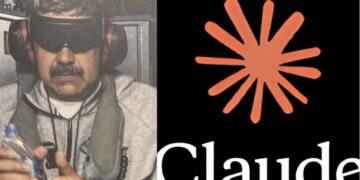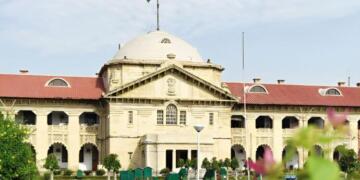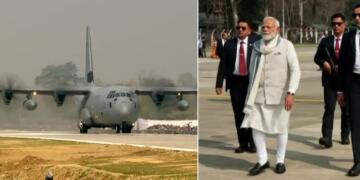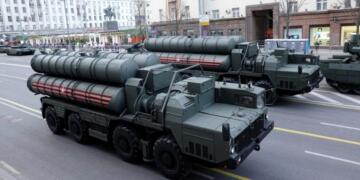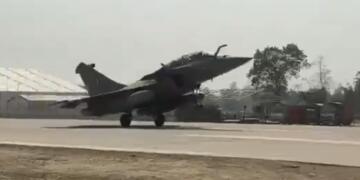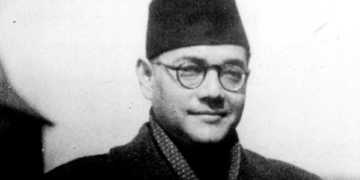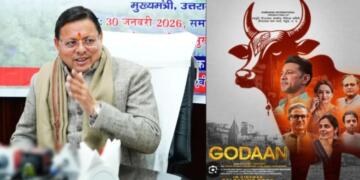Gorur Ramaswamy Iyengar Gopinath is an Indian army veteran. He served as a captain in the Indian army before retiring early at the age of 28. He became an entrepreneur and started many ventures. His innovative methods in the field of sericulture won him the Rolex Laureate Award in 1996. He then started Malnad Mobikes which was a dealership involved in the sale of Royal Enfield motorcycles. He also opened a hotel in his native district of Hassan in Karnataka. However, he had a dream which can be termed as a very noble one. His dream was to ensure that every Indian could afford to fly. Prior to 1991, i.e. before the economic reforms were initiated by the PV Narasimha Rao government, flying was a luxury to most Indians. There were not many options except for Indian Airlines and Air India both of which were state owned. Even after the reforms kicked in, flying was still expensive for most Indians.
Captain Gopinath started Deccan Aviation with the intention of working towards his dream. It started off as a charter helicopter service in 1997. However, in 2003, his dream became a reality. After getting inspired by the success of the Southwest Airlines in the USA and of Ryanair in Europe, Captain Gopinath and Deccan Aviation launched Air Deccan which was termed as India’s first low cost airline. It was a huge success and as a domino effect, other players in the aviation industry also started reducing their prices. Suddenly, flying was no longer a luxury and it became affordable to many Indians. Captain Gopinath’s dream was realised and as a result of his success, he was knighted by the French government in 2006 and bestowed with the “Chevalier de la Legion d’Honneur” award which is the highest civilian honour in France. Air Deccan and Captain Gopinath’s success story won them many awards across the world.
Building upon the success and fame earned, Air Deccan went public in the year 2006. The intention was to become profitable in 18-24 months. Unfortunately, this did not materialize and the airline started losing money. At this point of time, the United Breweries (UB) group which was then led by the now infamous business tycoon Vijay Mallya purchased a 26% stake in Air Deccan which was now connecting as many as 69 cities across the country. In 2008, Mallya merged his Kingfisher Airlines with Air Deccan based on a suggestion made by Accenture Consulting. By 2009, Captain Gopinath had sold most of his shares and his stake in the company was just 1.75%. Kingfisher Airlines went into a crisis and left Mallya with a lot of debt due to which he was branded as a willful defaulter and everyone knows this part of the story.
Captain Gopinath used the money that he had obtained by selling his shares to start Deccan 360 in 2009 which was a freight flight or a cargo airline. Unfortunately, this did not become a success and it had to shut shop in 2013 after the order of the Karnataka High Court due to the non-payment of dues.
However, four years later in 2017, Captain Gopinath is back into business and Air Deccan has got a rebirth of sorts. A major factor that has enabled Air Deccan to come back into the business is the Government of India’s UDAN scheme. Now what exactly is this scheme?
UDAN which actually stands for Ude Desh ka Aam Naagrik, has been initiated as Regional Connectivity Scheme (RCS) with the objective of enabling every common citizen of the country to fly. The scheme has two components. The first component’s objective is to develop new airports and also enhance the existing airports in order to increase the number of scheduled flights from 70 which was the figure in May 2016 to at least 150 by December 2018. Initially, an investment of ₹4500 crore was made by the GOI as a part of this component under the scheme.
The objective of the second component is to connect more than 100 underserved and served airports which are typically located in smaller or tier-ii cities and towns. The government received 141 proposals in November this year from various airline and chopper companies out of which five airline companies won the bid to operate on 128 routes. These five companies include SpiceJet, Airline Allied Services (a subsidiary of Air India), Air Odisha, Air Deccan, and Turbo Megha Airways. The states that will be connected through this scheme include Punjab, Uttar Pradesh, Madhya Pradesh, Maharashtra, Andhra Pradesh, Gujarat, Himachal Pradesh, Karnataka, Tamil Nadu and Puducherry (Union Territory).
So, UDAN scheme has enabled Captain Gopinath and Air Deccan to come back into the business.
Air Deccan was started with the intention of enabling every Indian citizen to fly which was the dream of Captain Gopinath. UDAN scheme has also been started by the GOI with the same intention. Air Deccan in its first innings had completely changed the face of the aviation sector in India. It was India’s first low cost carrier (LCC) and currently, the market is dominated by the LCCs who account for 67.7% of the market share. It will be good for the citizens of India if both Air Deccan and UDAN scheme succeed since both of them have the same intention of enabling every citizen to fly.




